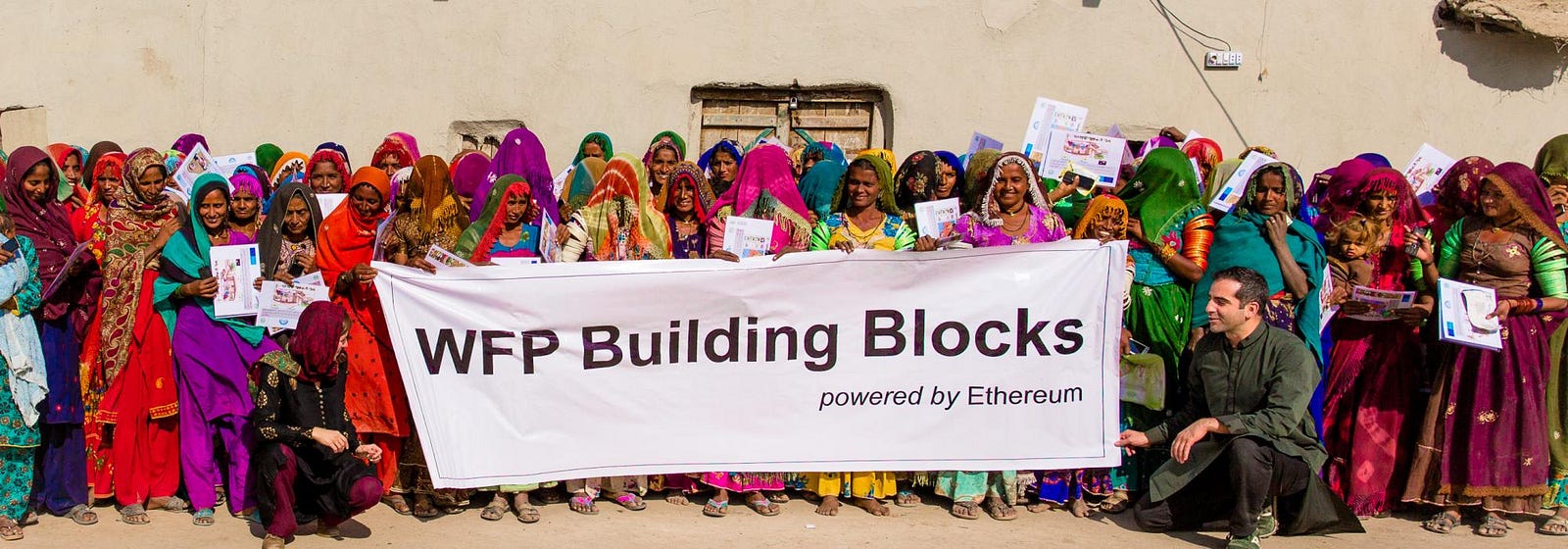Utilizing Cryptocurrency & Blockchain Technology for the Good of Humankind
Utilizing Cryptocurrency & Blockchain Technology for the Good of Humankind


Crypto Community Not All Greedy Opportunists Out for Themselves
Rita Trichur, Senior Editor, Report on Business Toronto, of the Globe and Mail wrote in an article titled ‘Cryptocurrency promoters say they’re helping humanity — but they’re just helping themselves’
I am well aware of many participants in the industry that know there is money to be made in the space but I am also privileged to know of many great innovators in the space that are constantly thinking about how to help mankind in their projects.
**The article does not mention blockchain technology, only crypto and there are differences but this article is not the Chicken or the Egg debate.**
I asked a few friends in the crypto — blockchain space what they thought of the article and here are some of the replies I received:
“if you’re not part of the solution, then you’re part of the problem. If you’re engaged in reckless defamation of the people that are trying to solve problems, then you’re part of the problem. The blockchain developer community is trying to solve real-world problems and real-world challenges using crypto-economics as a tool and the reporters that are engaged in optimizing for click-bait CPMs by slinging mud at the problem-solvers, need to examine all the choices they made that led them to being part of the problem.”— Arunabh Das, CTO of RNDflo Inc.
“Interesting thing is about how people can bend the facts to make it work for them. For example, “hodl” was born of a typo, but transformed in this article from ‘hold’ into “hold for dear life” making the abbreviation sound like a bad thing. Same with the technology in general and blockchain technology in particular.
There are people who invent technology and work really hard to make it work for society and for other people, but there are people who want to make it work for themselves and use it as a get rich scheme. The common denominator here are people — not blockchain technology. Blockchain technology is the great invention that doesn’t have borders and has a great potential to solve world problems. How we people use it is another story. Look at the people and what they do — don’t blame technology for that.
CryptoChicks do care about blockchain technology and its future as we see it’s potential. And we do care about making it more diverse, more usable by bringing in more people; women in particular, into the space. How our women will use it — it’s up to them, but we want to give them and blockchain technology a chance to evolve together.” — Elena Sinelnikova, Founder and CEO, CryptoChicks
Blockchain Technology for the Greater Good
Termed by many as the “biggest invention for the future,” the development of blockchain could potentially revolutionize issues related to the good of humanity. While many people still have no clear understanding of blockchain, the technology is slowly becoming more widely known.
What is Blockchain Technology?
“The blockchain is an incorruptible digital ledger of economic transactions that can be programmed to record not just financial transactions but virtually everything of value.”
Don & Alex Tapscott, authors Blockchain Revolution (2016)
Blockchain technology can help curb child trafficking — Human rights is a pivotal area where blockchain technology can have a significant, positive effect. The United Nations has helped develop a blockchain identity pilot aimed at curbing child trafficking. Undocumented children under the age of 5 are often considered “invisible” to governments and other agencies and are at a higher risk for falling into the hands of child traffickers. Shockingly, this constitutes half of the world’s children. These traffickers create fake identification for these young children, so they can be traded and sold into the illegal human organ trade, modern slavery rings, or sex trafficking. Storing digital identities on a blockchain may significantly increase the chances of catching these traffickers and freeing trafficked children.
“Child trafficking is one of the greatest human rights abuses. Leveraging blockchain technology offers potentially powerful solutions to address this serious challenge and save the lives of millions of children.”
Yannick Glemarec, UN Assistant Secretary General and UN Women Deputy Executive Director
Blockchain technology helping refugees — Blockchain technology could help millions of refugees by solving critical problems, such as documentation, hunger, and obtaining work. When refugees leave their homes, they are often forced to do so quickly. This means that many of them leave behind important documents that could help them start a new life in a new country, such as passports, marriage licenses, and birth certificates. Identities on the blockchain are time-stamped and public, making it easier for refugees to obtain digital ID documents, which other governments could use to verify their identity.
Bitnation, the world’s first decentralised borderless voluntary nation, started in July 2014 and hosted the world’s first blockchain marriage, birth certificate, refugee emergency ID, World Citizenship, DBVN Constitution and more. The website proof-of-concept, including the blockchain ID and Public Notary, is used by tens of thousands of Bitnation Citizens and embassies around the world. In 2015 Bitnation registered the first refugees on the blockchain with a decentralized project called Refugee Emergency Response (BRER) to help resolve the current refugee crisis in Europe by registering undocumented individuals on the blockchain.


Blockchain technology to help feed the hungry — Mismanagement of refugee funds is an increasing problem when international organizations distribute aid. The World Food Program is taking steps to utilize blockchain technology to provide effective, efficient assistance to the people in most need. With its Building Blocks pilot, WFP is trialing blockchain technology as a means of making cash transfers more efficient, transparent and secure. For refugees living in camps, Building Blocks has integrated with the existing biometric authentication technology developed by IrisGuard allowing refugees to identify themselves with the blink of an eye.
Cash transfers, through vouchers or prepaid debit cards, allow those in need to purchase their own food locally and are an effective way to empower them to make their own purchasing decisions to relieve hunger.
As of January 2018, more than 100,000 refugees residing in camps have redeem their WFP-provided assistance through this blockchain-based system.

Blockchain technology to help fight human rights abuses in the food chain — At the beginning of 2018 the World Wildlife Fund and its partners introduced revolutionary blockchain technology to the Pacific Islands’ tuna industry, the first of its kind for this region, to help stamp out illegal fishing and human rights abuses.
“Bait-to-plate transparency using the blockchain will mean there is no place to hide for illegal, unregulated and unreported fishing or those operators who use slave labour or impose horrific conditions.”
- WWF-Australia CEO, Dermot O’Gorman
Blockchain technology allows large buyers (like Walmart) to know whether their fish is being ethically harvested, and even allows consumers to verify where their food is actually coming from, and under what conditions.
There are a lot of great projects coming out of the cryptocurrency/blockchain space and hopefully with regulation taking hold the good projects will get a lot more attention as the bad apples get forced out of the space.
Any significant advance in mankind’s evolutionary progress has always been enabled by technology. Fire allowed our species to massively grow our brains with the newly available nutrients available from cooked food. The Personal Computer empowered a union between the average citizen and computing power, and now the Blockchain enables a trustless recording of most kinds of human exchange, including the nexus of Aggregated Data and Artificial intelligence, in a Decentralized meritocracy where skills and ideas are valued; gender, nationality, religion, color, and socioeconomic status are becoming irrelevant.
The genesis of the company where I am a co-founder, CodingFly, was to create a solution for IT Developers who would often not receive payment for their work or have a right to protection for their own Intellectual Property. This is easily remedied with Smart Contract triggers and it is an especially ideal use case for Blockchain Technology. There are indeed many of these, from MicroFinance fulfillment to a Blockchain Cinema company rewarding documentary viewers’ existing behavior with Tokens that can then be donated to groups working on solutions to problems highlighted in the movie, the Blockchain revolution is replete with the tools and vibrant minds committed to making the world a better place. We global citizens who consume government services in concert with private sector goods and services will need to now decide through our consumptive behavior how our data is used and governed to ensure a safe, egalitarian future.
Randy McGuire, Co-founder CodingFly
